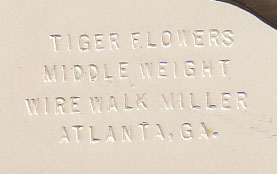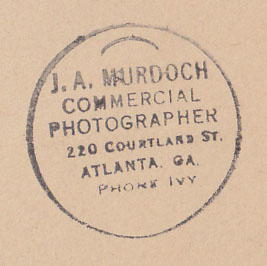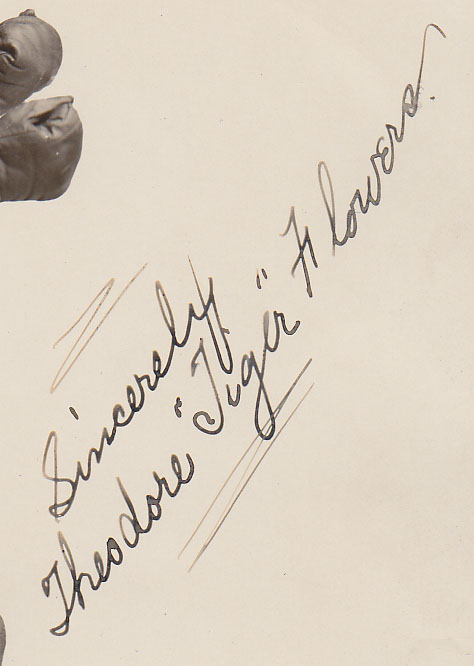|
In 1926 Theodore
"Tiger" Flowers became the first black boxer to capture the
world middleweight championship. He was the first African
American after Jack Johnson to challenge for a world title.
Flowers helped to reform the image of black prizefighters,
prefiguring the great Joe Louis with his ability to garner broad
support among both whites and blacks.
Flowers was born in
Camilla in 1895 and moved with his family to
Brunswick
as an infant. After working as a stevedore on the
Georgia coast,
Flowers temporarily relocated to Philadelphia, where he took up
boxing. It was only after his move to
Atlanta
around 1920, however, that he started training seriously, with
manager Walk Miller. Over the next six years this
lightning-quick lefthander competed all over the country in a
grueling ascent to the top of the boxing ranks. Flowers combined
showmanship inside the ropes with a public persona characterized
by sobriety and religious devotion (he carried a Bible into the
ring for each fight). So evident were these qualities, Flowers
became known as "the Georgia Deacon." His unthreatening behavior
helped to expunge the memory of the more inflammatory Jack
Johnson.
Flowers finally earned an official
challenge against the world middleweight champion, Harry Greb,
in February 1926, winning the title and then defending it in a
closely fought rematch. Yet his glory was brief. In December
1926 he lost to Mickey Walker in Chicago on points. The decision
united fans and reporters alike in loud condemnation of the
judges and referee, and there were persistent rumors that the
bout was fixed by local mobsters.
Less than a year later,
in November 1927, at thirty-two years of age, Flowers died while
undergoing an operation to remove scar tissue from around his
eyes. At the time he was negotiating a return match with Walker.
Miller died within a year of his former charge.
Flowers had been an
important figure in Atlanta's black community—a deacon at the
Butler Street CME Church and a member of the Masons, Elks, and
Knights of Pythias. His house on Simpson Road was one of the
most luxurious in the city. Estimates put the number of
mourners, of both races, who filed past the coffin in Atlanta at
75,000. Another 7,000 crammed the City Auditorium to witness a
lavish memorial service. Atlanta was not to demonstrate its
grief again on anything approaching this scale until the
assassination of
Martin Luther King Jr.
in 1968. |
%20SP.jpg)
%20SP.jpg)


